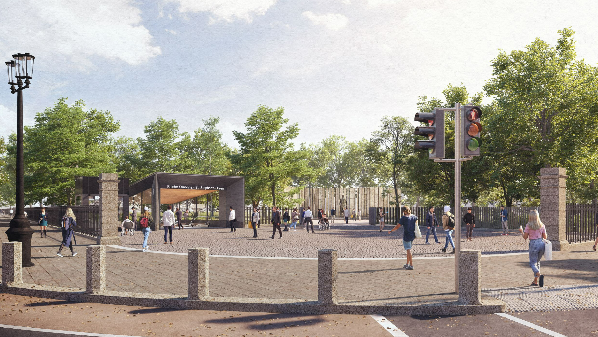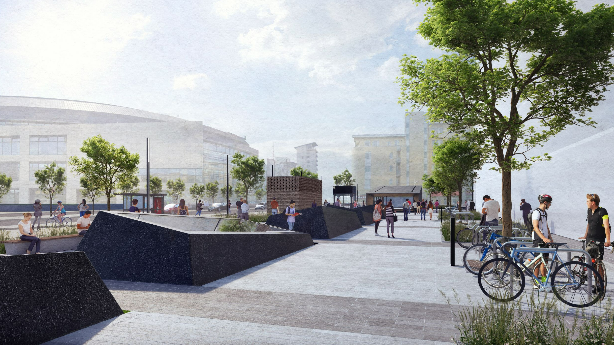€9.5bn 'megaproject' to transform Dublin public transport

At a glance
A planning application for a project that will "transform public transport in Dublin" is to be lodged.
The MetroLink transport project will be 19.4km in length with 16 stations mostly underground.
It is estimated to cost about €9.5bn at least.
The project will connect the north and south sides of the city.
- Published
A planning application for a massive transport project in Dublin is to be lodged with An Bord Pleanála (Irish planning board) in September.
The Irish Department of Transport said the MetroLink project would "transform public transport in Dublin and improve interconnectivity with national rail links".
It is expected to be in operation in the early 2030s.
Minister for Transport Eamon Ryan said he was confident that the project can be delivered on time and within budget.
He added that the cost estimates of €9.5bn (£8.16bn) were "excessively cautious and conservative".
Mr Ryan described the MetroLink plan as a ''megaproject'', which he claimed would transform public transport in Dublin.
The project aims to connect the north and south sides of the city.
It will be 19.4km in length with 16 stations mostly underground, running from north of Swords to Charlemont Street in the south of Dublin city centre.
The department said there would be trains running every three minutes at peak times, capable of carrying up to 20,000 passengers per hour in each direction.
It will interchange with the DART (Dublin's train service) and Luas (tram service) transport systems.
By 2050, the Irish government estimates that it will provide more than one billion carbon neutral fully electrified passenger trips.
A planning submission will be lodged in September, with the Department of Transport recommending its approval.

A final costing has not yet been worked out because the project still has to go through the planning and procurement stages.
RTÉ said that while early estimates for the transport plan come in at €9.5bn, the most extreme figures go up to €23bn (£19.8bn).
Mr Ryan said he expected the overall cost to come in at the lower range estimate of just over €7bn (£6bn) because "the tenders could be lower" to deliver the project.
He said he was confident that it would deliver benefits to the Irish economy over time.